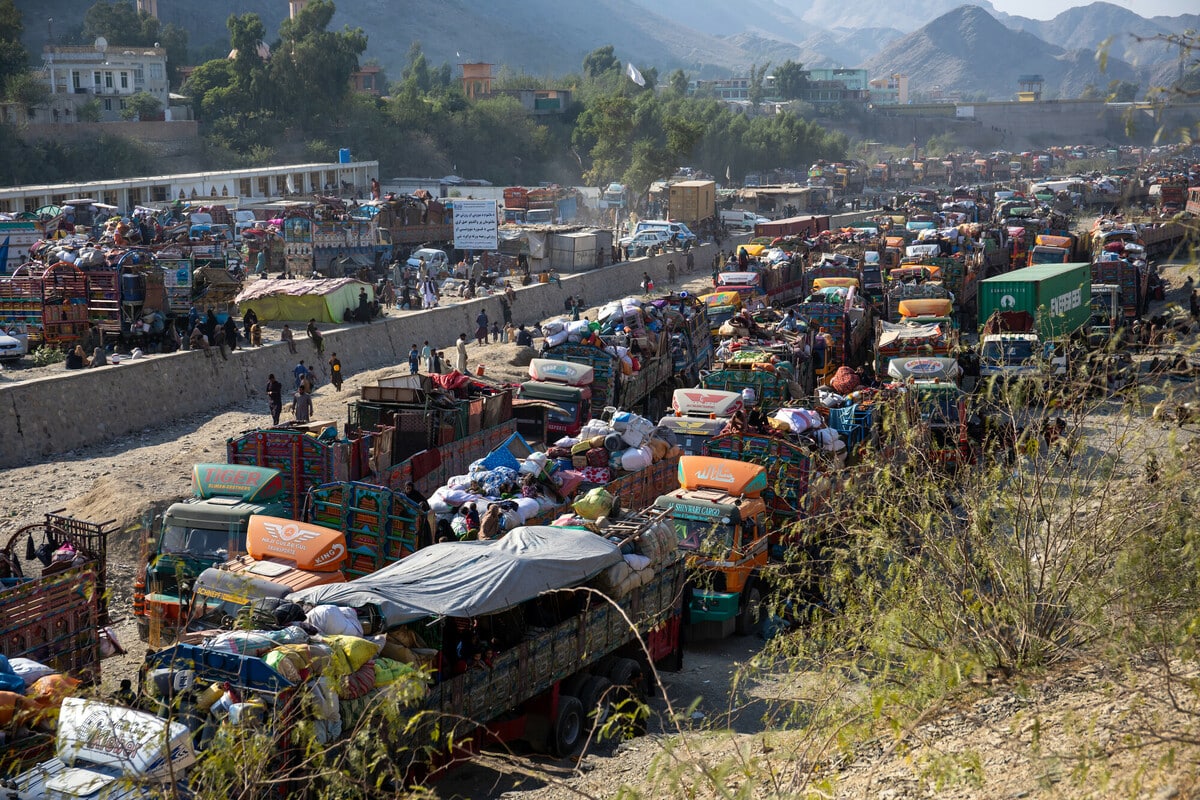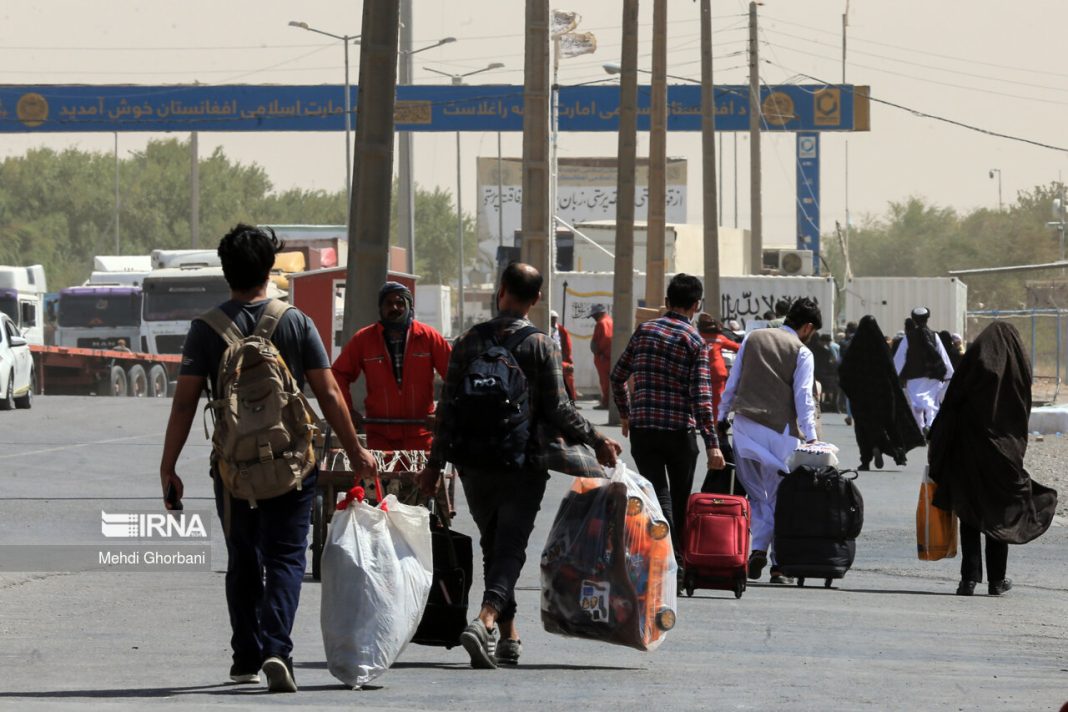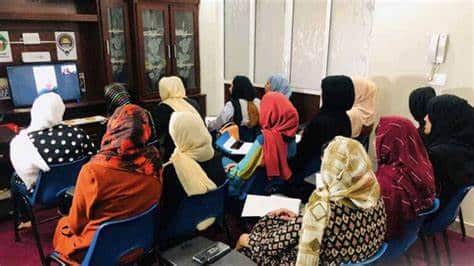
Afghans returning from Pakistan after expulsion order have nowhere to go, warn aid agencies
آژانسهای امداد رسان هشدار میدهند، افغانهایی که پس از حکم اخراج از پاکستان باز میگردند، جایی برای رفتن ندارند
سازمانهای امدادی NRC، DRC و IRC از زمان اعلام پاکستان مبنی بر اینکه همه افغانهای غیرقانونی باید کشور را تا اول نوامبر تخلیه کنند، افزایش چشمگیری در تعداد افرادی که از پاکستان به افغانستان بازگشتهاند مشاهده کردهاند. تعداد روزانه ورودها که اکنون بین 9000 تا 10000 نفر متغیر است، با میانگین قبلی تقریباً 300 نفر در روز قبل از اعلام در 15 سپتامبر 2023 متفاوت است. ممکن است 1.7 میلیون نفر تحت تأثیر قرار بگیرند.
شرایط ورود آنها به افغانستان وخیم است، به طوری که بسیاری از آنها سفرهای طاقت فرسای چند روزه را تحمل کرده اند، در معرض عوامل قرار گرفته اند و اغلب مجبور شده اند در ازای حمل و نقل از دارایی خود جدا شوند.
تیم های این سازمان ها مستقر در مناطقی که مردم در حال بازگشت از پاکستان هستند، صحنه های آشفته و ناامیدکننده ای را در میان کسانی که بازگشته اند، گزارش کرده اند. برای بسیاری، ترک پناهگاه موقت خود در پاکستان یک امر انتخابی نبود، بلکه یک ضرورت عجولانه بود. یک افغان اخراج شده می گوید: “من الان استرس دارم و نگرانم که چه کار کنم. قبلاً در پاکستان چای می فروختیم، اما اینجا چه کار می توانیم بکنیم؟ در افغانستان فرصت شغلی وجود ندارد و من در اینجا هیچ ملک و خانه ای ندارم.”
NRC، DRC، و IRC نگرانی های جدی در مورد چشم انداز بقا و ادغام مجدد عودت کنندگان از پاکستان به جامعه افغانستان، به ویژه با شروع فصل زمستان دارند.
نیل ترنر، رئیس NRC در افغانستان گفت: “افزایش اخیر افغان هایی که از پاکستان برگشته اند، منابع ما و زیرساخت های شکننده در افغانستان را تحت الشعاع قرار داده است. مردم در وضعیت وحشتناکی به آنجا می رسند، و اغلب مقدار اندکی را که برای سفر پرداخت می کردند فروخته اند. ما عمیقاً در مورد رفاه آنها و همچنین فشاری که بر تلاشهای بشردوستانه ما وارد میکند، نگران هستیم.”
ضیا مایار، رئیس موقت DRC در افغانستان گفت: “تیم های ما در صحنه شاهد استیصال کسانی هستند که به کشوری بازگشته اند که با چالش های بزرگ دست و پنجه نرم می کند و خانه یا زمینی برای بازگشت به آن وجود ندارد. مردم افغانستان به حمایت بیشتر نیاز دارند. در زمانی که بودجه به شدت در حال کاهش است. ما از جامعه بین المللی می خواهیم که برای رسیدگی به این بحران در حال آشکار شدن سریع عمل کند.
سلما بن عیسا، رئیس IRC در افغانستان گفت: “وضعیت در افغانستان وخیم است. با جمعیت موجود بیش از شش میلیون آواره داخلی که در شرایط وخیم زندگی می کنند، افغان هایی که از پاکستان باز می گردند با آینده تیره و تاریکی روبرو هستند، به ویژه برای کسانی که از این وضعیت رنج می برند. ما برای چندین دهه در پاکستان زندگی میکنیم.
متأسفانه، افغانستان که هنوز از دههها درگیری، زلزلههای ویرانگر اخیر و یک بحران فلجکننده اقتصادی در خود میپیچد، چیز زیادی برای ارائه ندارد و برای کسانی که به کشور بازگشتهاند چشمانداز کمی برای بازسازی زندگیشان باقی میگذارد. مردم افغانستان برای پایان دادن به بحران بشردوستانه به راه حل های پایدار درازمدت، از جمله کمک های توسعه ای بسیار مورد نیاز که کمک کنندگان بین المللی در حال حاضر تمویل نمی کنند، نیاز دارند.
Aid organisations NRC, DRC, and IRC have observed a dramatic surge in the number of people returning to Afghanistan from Pakistan since Pakistan’s announcement that all undocumented Afghans must vacate the country by 1 November or risk deportation. The daily number of arrivals, which now ranges between 9,000 and 10,000 individuals, marks a stark contrast to the previous average of approximately 300 individuals a day before the announcement on 15 September 2023. As many as 1.7 million people could be affected.
The conditions in which they arrive in Afghanistan are dire, with many having endured arduous journeys spanning several days, exposed to the elements, and often forced to part with their possessions in exchange for transportation.
The organisations’ teams stationed in the areas where people are returning from Pakistan have reported chaotic and desperate scenes among those who have returned. For many, leaving their temporary refuge in Pakistan was not a matter of choice but a rushed necessity. “I am stressed and worried about what to do now. We used to sell tea in Pakistan, but what can we do here? There are no job opportunities in Afghanistan, and I don’t have any property or house here,” said one deported Afghan in Afghanistan’s Nangarhar province.
NRC, DRC, and IRC share grave concerns about the prospects for survival and reintegration of returnees from Pakistan into Afghan society, particularly with the onset of winter.
Neil Turner, NRC’s country director in Afghanistan said: “The recent surge of Afghans returning from Pakistan has overwhelmed our resources and the fragile infrastructure in Afghanistan. People arrive in a terrible condition, having often sold what little they had to pay for the journey. We are deeply concerned about their well-being as well as the strain it places on our already stretched humanitarian efforts.”
Zia Mayar, DRC’s interim country director in Afghanistan said: “Our teams are on the ground witnessing the desperation of those returning to a country already grappling with immense challenges, and with no house or land to go back to. The Afghan people need increased support at a time where funding is sharply decreasing. We call on the international community to act swiftly to address this unfolding crisis.”
Salma Ben Aissa, IRC’s country director in Afghanistan said: “The situation in Afghanistan is dire. With an existing population of over six million internally displaced individuals living in dire conditions, the Afghans returning from Pakistan face a bleak future, particularly for those who have been living in Pakistan for decades. We urgently need international support to provide shelter, food, and healthcare for these vulnerable people.”
Regrettably, Afghanistan, still reeling from decades of conflict, recent devastating earthquakes and a crippling economic crisis, has little to offer, leaving those who return with few prospects to rebuild their lives. The Afghan people need long-term sustainable solutions to end the humanitarian crisis, including much-needed development assistance that international donors do not currently fund.
Notes to editors
- Out of the 4.4 million Afghan refugees estimated to be living in Pakistan, there are 1.73 million who have no legal documents to stay.
- UNHCR has issued a non-return advisory to Afghanistan in August 2021. It was renewed in February 2023 and calls for a bar on forced returns of Afghan nationals, including asylum seekers who have had their claims rejected.
- The daily number of arrivals of returnees from Pakistan to Afghanistan now ranges between 9,000 and 10,000 individuals, according to the International Organization for Migration (IOM).
- The Regional Refugee Response plan to support 7.3 million Afghans hosted in neighbouring countries, is only 15.4% funded out of the $613 million requested to meet the needs.
- Over 29 million Afghans inside the country are currently in need of humanitarian assistance according to UN estimates, with 17.2 million people, 40 percent of the population, struggling to meet their basic food needs.
- Aid operations in the country face a critical funding gap as humanitarian needs remain severe. As the end of the year draws near, the $3.2 billion appeal to help more than 29 million people across the country is just 36 per cent funded.
- Photos from Afghanistan can be downloaded for free use here.
- Video b-roll from Afghanistan can be downloaded for free use here.
For more information or to arrange an interview, please contact:
- NRC global media hotline: media@nrc.no, +47 905 62329
- Christian Jepsen, Regional Communications Adviser, NRC’s Asia and Latin America Regional Office: christian.jepsen@nrc.no, +254 706248391 (WhatsApp)
- Nancy Dent, IRC Associate Director for Public Affairs & Communications, Asia & Europe Regions: nancy.dent@rescue.org, +44(0) 7946 139 182
Main Resource Link
- Tags
- Asia



